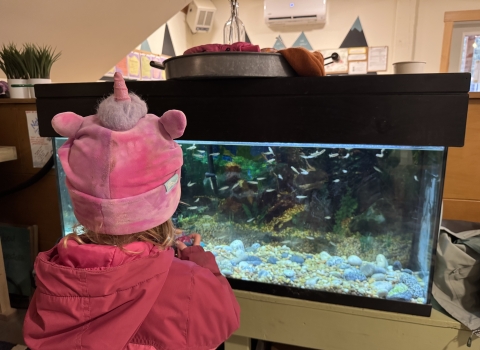The Elizabeth A. Morton National Wildlife Refuge in Sag Harbor provided habitat for two pairs of piping plovers, fifteen (15) pairs of least terns and one pair of American oystercatchers. One pair of piping plover nested at the Amagansett refuge in East Hampton. Staff regularly monitored these nests and documented progress. Nesting shorebirds at both refuges were challenged with nest and chick loss by avian and mammalian predators. At the Elizabeth A. Morton refuge, one piping plover pair and one least tern pair both successfully fledged chicks. Several other migratory birds also used the refuges for nesting, foraging, and loafing including osprey, willet, ruddy turnstone, common tern, semipalmated plover, black-bellied plover, sanderling, herons, and egrets.
Refuge staff wish to thank visitors for respecting the beach closures that were in place during March through August. These closures helped to reduce disturbance to nesting shorebirds and other migratory species. The Jessup’s Neck peninsula at the Elizabeth A. Morton refuge and the beach at Amagansett refuge have now re-opened to public access.
Amagansett refuge and Elizabeth A. Morton refuge are part of the Long Island Refuge Complex. The Complex encompasses 6,670 acres and includes seven national wildlife refuges, two refuge sub-units and one wildlife management area wildlife management area
For practical purposes, a wildlife management area is synonymous with a national wildlife refuge or a game preserve. There are nine wildlife management areas and one game preserve in the National Wildlife Refuge System.
Learn more about wildlife management area . The Complex was established to conserve habitat for migratory birds, protect threatened and endangered species, enhance, and restore habitat for native flora and fauna, and provide wildlife-dependent public uses, where appropriate and compatible. The larger National Wildlife Refuge System consists of 588 national wildlife refuges throughout the United States and U. S. territories. For more information, please contact the Refuge Complex Headquarters at 631-286-0485 or visit our website at: https://www.fws.gov/refuge/amagansett and https://www.fws.gov/refuge/elizabeth-alexandra-morton.

